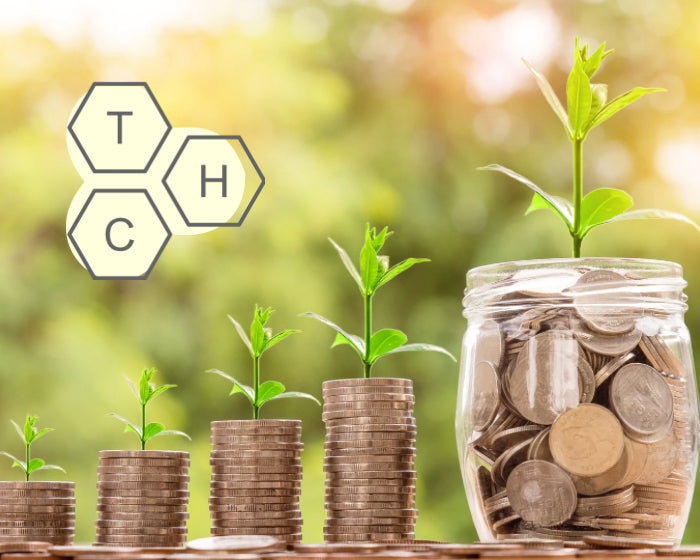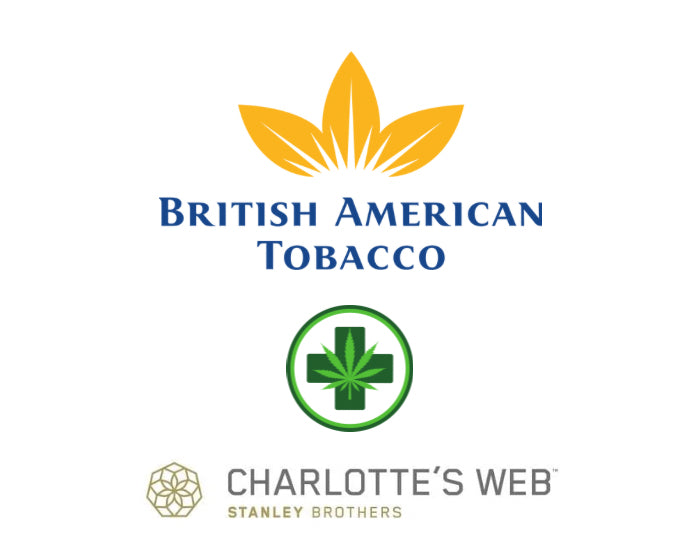The NBA and MLB are leading America's popular sports leagues in openly supporting hemp and marijuana products.

In the not-too-distant past, associating professional sports organizations with plant medicines, like marijuana and hemp-derived CBD, would have been viewed as a calamitous detriment and by no means a positive for those vaunted leagues.
Oh, how times and attitudes have changed. Last week, the National Basketball Association (NBA) and Major League Baseball made groundbreaking and historic announcements regarding new policies and ventures with companies in the hemp and cannabis industries.
According to multiple media outlets, the Chicago Cubs became the first MLB club to announce a new partnership with a CBD company last Friday. The team has reportedly inked a new marketing agreement with MYND DRINKS, a CBD sparkling beverage brand. Per the contractual arrangements, the company's products will be promoted via signage and "several in-game features" at the Cubs' home park, Wrigley Field.
This first official partnership between a major league franchise and a hemp/cannabis company comes on the heels of MLB formally naming Charlotte's Web as the league's official CBD sponsor last year, just before the World Series. As part of that announcement, the league said individual teams could begin selling partnerships to cannabis businesses, provided those potential companies' product offerings are certified by NSF International. In addition, each club must also receive authorization from the MLB's commissioner's office prior to signing any agreements.
Following the announcement, Alex Seyferth, Vice President of Corporate Partnerships at the Chicago Cubs, said in a press release, "When MLB opened the CBD category for its clubs, it allowed us to explore new partnership opportunities and offerings. We're proud to be the first club to partner with a CBD company, but what was more important to us was making sure that the brand was the right fit."
"When MLB opened the CBD category for its clubs, it allowed us to explore new partnership opportunities and offerings. We're proud to be the first club to partner with a CBD company, but what was more important to us was making sure that the brand was the right fit."
Alex Seyferth, Vice President of Corporate Partnerships at the Chicago Cubs
Often viewed as a sport mired in tradition and the "old ways," Major League Baseball has begun to take on a more proactive and forward-thinking attitude, particularly regarding the issue of marijuana. For example, in 2019, the league removed cannabis from its list of banned substances and followed that decision up in 2020 by clarifying in a league-wide memo that players would not receive punishments for using marijuana when they are not on the job.
Not to be outdone in the progressive growth department, the NBA has also begun to change its policies and procedures concerning marijuana dramatically. As part of its new Collective Bargaining Agreement (CBA) between players and owners, the league announced several seismic changes, including removing cannabis from its list of banned substances.
However, the league went further by calling for an end to all marijuana drug testing. In addition, the proposed CBA, which players and team governors must still approve, will let players begin to promote and actively invest in cannabis companies, something no other league currently allows.
This pivotal evolution in the NBA's attitude toward marijuana can trace its genesis to the "bubble" in Orlando brought on by the catastrophic COVID-19 pandemic and shutdowns in 2020. During that unprecedented event, the NBA, like many other organizations struggling to figure out strategies to keep their industries afloat while protecting their human assets' physical and mental well-being, made a radical call concerning players and marijuana use - it suspended all testing and penalties.
As NBA Commissioner Adam Silver explained at the time, "We decided that, given all the things that were happening in society, given all the pressures and stress that players were under, that we didn't need to act as Big Brother right now. I think society's views around marijuana have changed to a certain extent."
"We decided that, given all the things that were happening in society, given all the pressures and stress that players were under, that we didn't need to act as Big Brother right now. I think society's views around marijuana have changed to a certain extent."
NBA Commissioner Adam Silver
Since that momentous event, the league's approach to marijuana use among players and its testing policies have gradually and systemically moved away from punishment, judgment, and stigma. Now players, like Americans in over 20 states, can legally enjoy the relaxing and restorative benefits of cannabis without fear of losing money or their careers.
Other professional sports leagues like the NFL and the UFC have also begun to change their attitudes and policies towards marijuana use. For example, in 2021, the UFC announced that its fighters would no longer receive punishments for positive cannabis tests.
Likewise, as part of its 2020 Collective Bargaining Agreement, the NFL stipulated that it would end its policy of suspending players for ANY positive drug test, including marijuana. Instead of suspensions, they would receive fines. The CBA also increased the threshold for a positive THC test result.
Sports leagues, like the NBA and MLB, are iconic and treasured institutions providing entertainment and thrills for millions of fans in America and around the world. However, they have also historically served as beacons of change for a society and culture often plagued by ignorance and bigotry.
Major League Baseball led the charge for integration with the Dodgers' daring and brave decision to make Jackie Robinson the first African American big league ballplayer. Twenty years later, the NBA's most storied and successful franchise, the Boston Celtics, tore down another despicable barrier by making its greatest player and most decorated champion, Bill Russell, the first African American coach of a major sports franchise in American history.
As modern-day gladiators, athletes possess many of those sought-after qualities humans admire so much in their "heroes." This most recent example of leadership surrounding the issue of marijuana is just another in a long line of cultural steps forward led by the young men and women who comprise those arenas of athletic excellence built on hard work, meritorious achievement and courage.




























